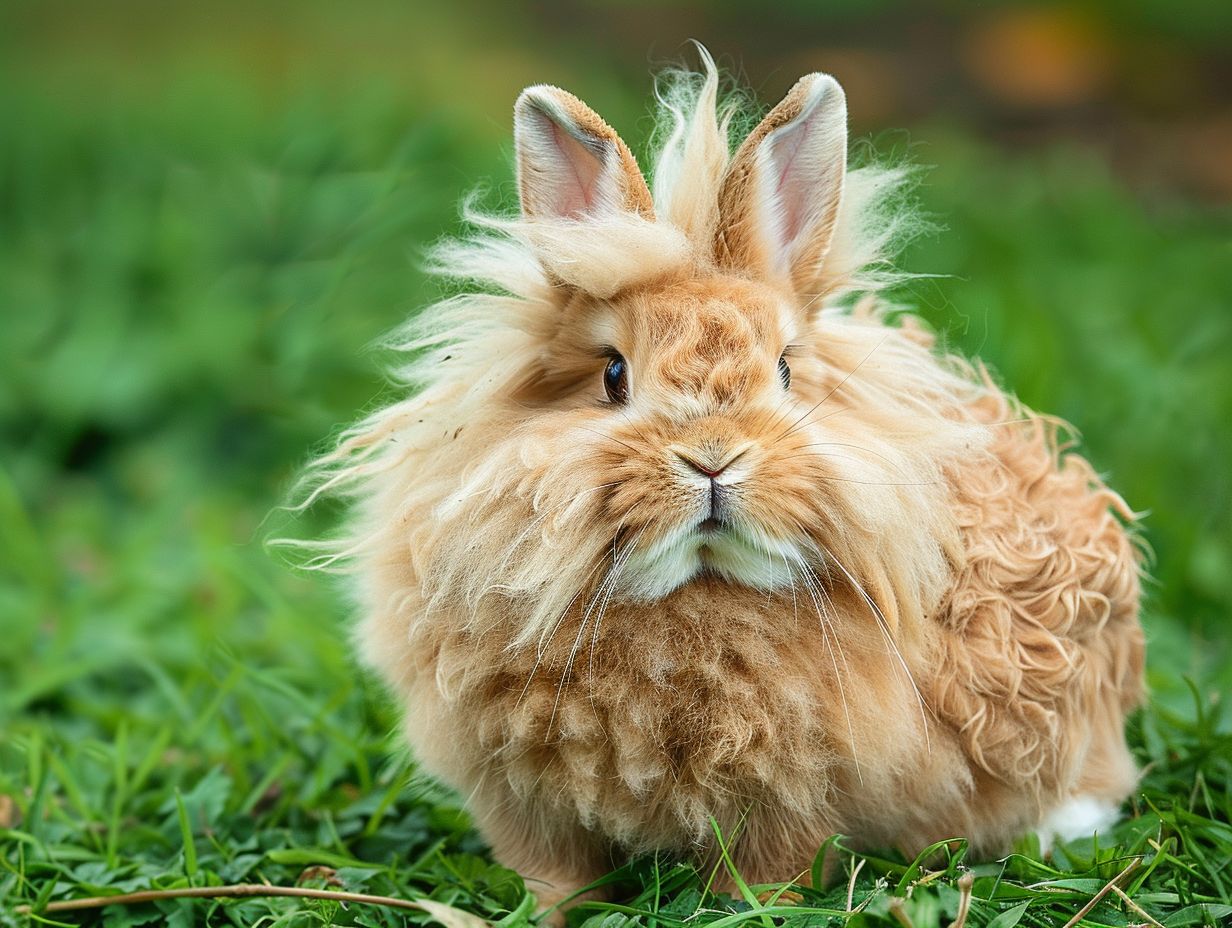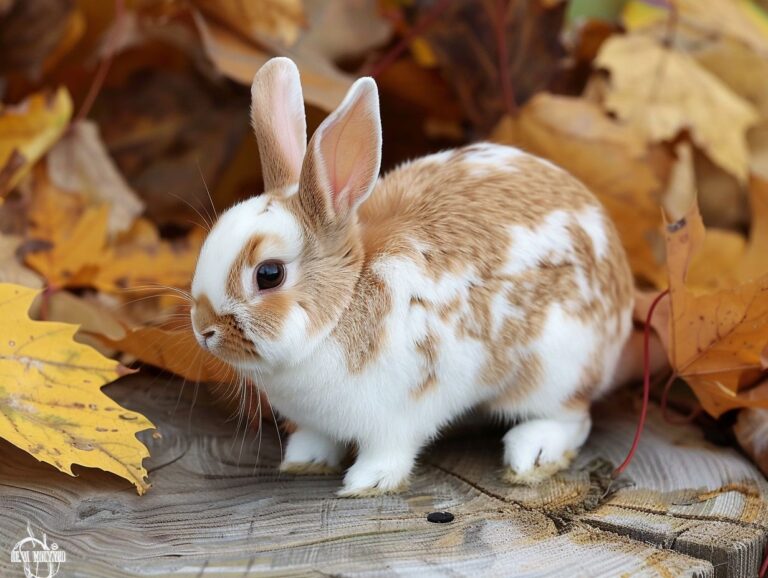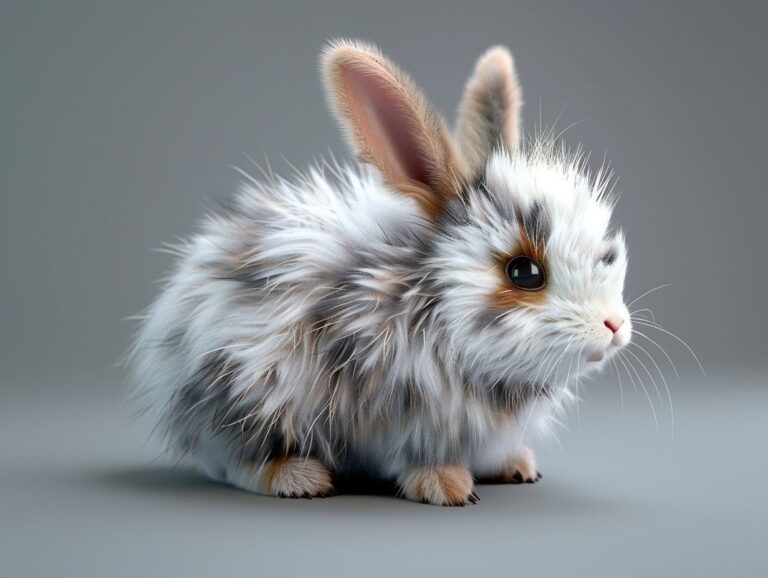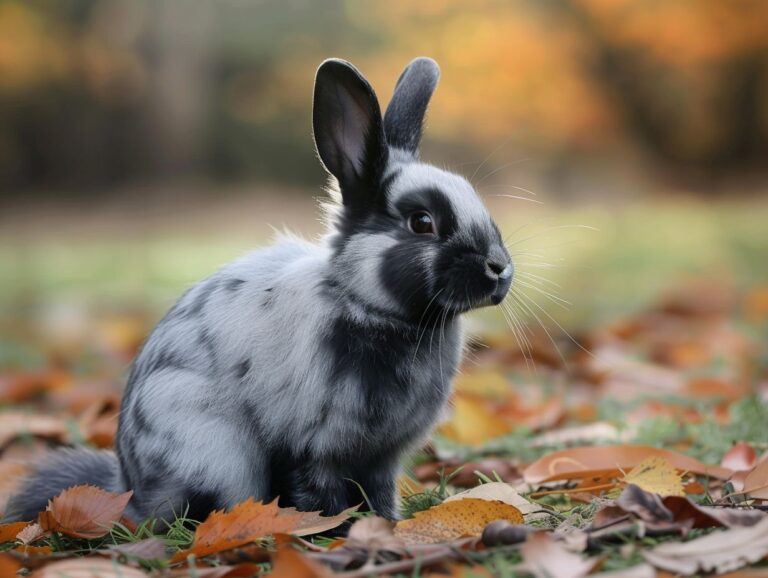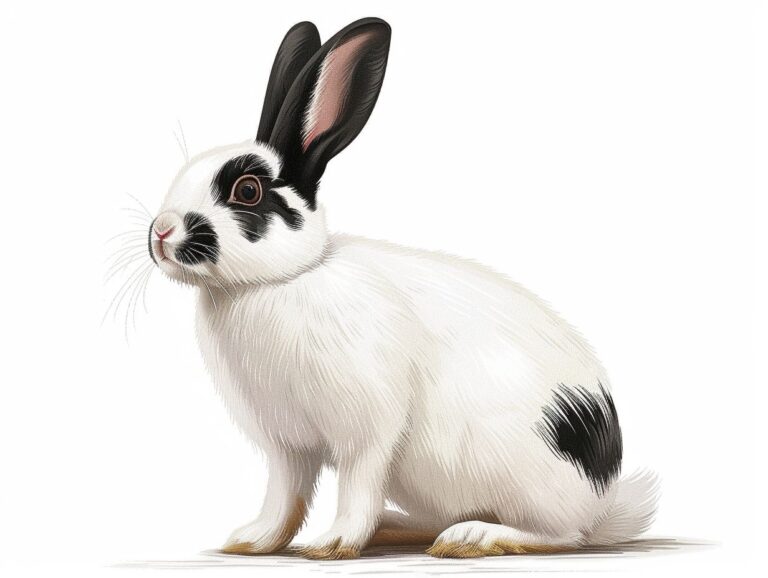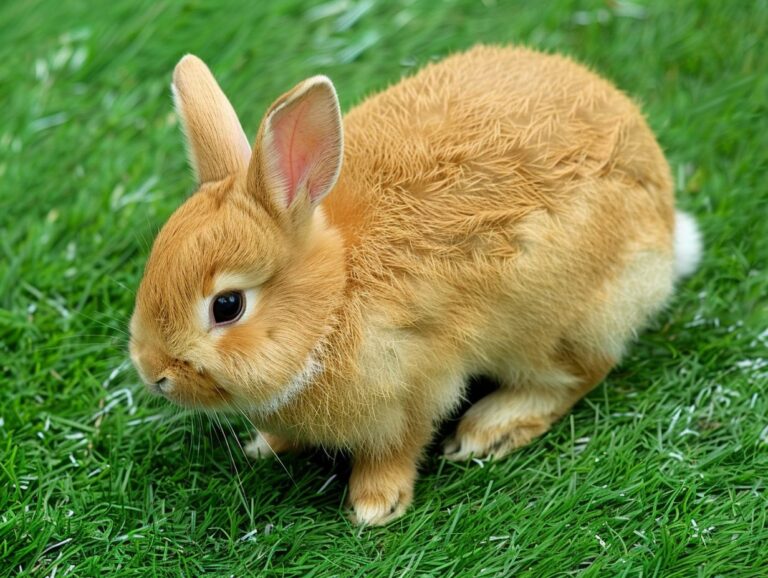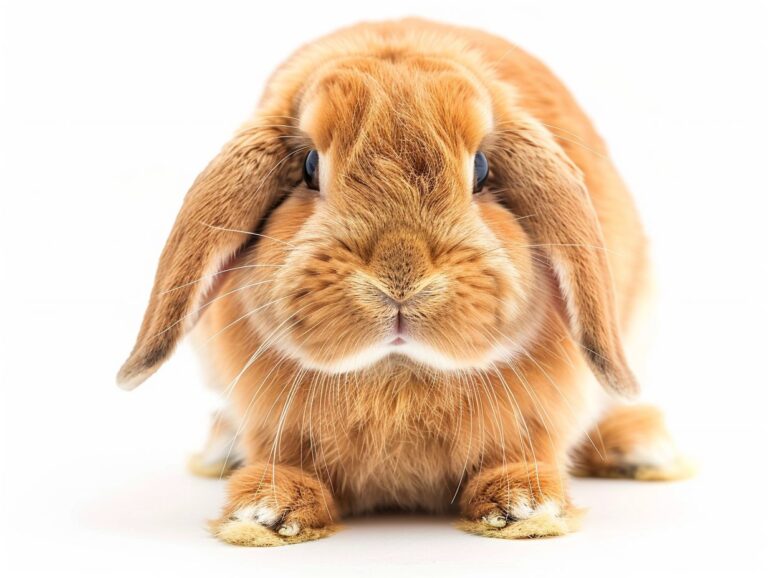Jersey Woolly Rabbit Breed: Characteristics, Care, History, and Breeding Practices
Are you looking to learn more about the adorable and fluffy Jersey Woolly Rabbit breed? From their fascinating history to their unique physical characteristics, this article covers everything you need to know about these lovable rabbits.
Discover the personality and temperament of the New Zealand rabbit breed, as well as tips on caring for their diet, housing, and grooming needs.
Learn about common health issues, breeding practices, and even showing and competitions for these charming rabbits. Dive into the world of Jersey Woolly Rabbits with us!
Key Takeaways:
What Is the Jersey Woolly Rabbit Breed?
The Jersey Wooly is a charming domestic rabbit breed known for its small size, docile nature, and adorable appearance. Originally developed by Bonnie Seeley, this breed has captured the hearts of many rabbit enthusiasts.
Originating in the United States in the 1980s, the Jersey Wooly was created by crossing a Netherland Dwarf with a French Angora rabbit. This strategic breeding resulted in a compact rabbit with a dense, wooly coat that requires regular grooming to prevent matting. Jersey Woolies typically weigh between 1.5 to 3.5 pounds and have a friendly, gentle temperament, making them ideal pets for families and individuals alike. Known for their distinctive fur and compact build, these rabbits are popular in both shows and as household companions.
History of the Jersey Woolly Rabbit
The history of the Jersey Wooly rabbit dates back to the breeding efforts of Bonnie Seeley at Maplewood Farm. Seeley’s dedication to creating a distinctive dwarf breed with lustrous wool coats led to the establishment of this beloved rabbit breed.
Jersey Wooly rabbits are widely cherished for their docile nature and compact size, making them ideal pets. Seeley’s meticulous selection and breeding practices aimed at developing a rabbit with both aesthetic appeal and gentle temperament, setting the foundation for their popularity. The breed’s journey from Maplewood Farm to various regions where it is now adored showcases the enduring legacy of Seeley’s vision. Today, enthusiasts and breeders alike continue to uphold the standards set by Seeley, ensuring the preservation and promotion of these adorable rabbits.
Physical Characteristics of the Jersey Woolly Rabbit
The Jersey Wooly rabbit breed is characterized by its compact size, wool coat that requires regular grooming, and a variety of colors such as English, German, and French Angora. These rabbits exhibit a distinctive appearance that sets them apart from other breeds.
The Jersey Wooly rabbit’s wool coat is incredibly soft, fluffy, and luxurious to the touch, making them popular in the world of rabbit enthusiasts and breeders. The dense fur of the Jersey Wooly provides insulation and protection from various weather conditions, ensuring their comfort. Not only are they known for their coat, but also for their small, rounded bodies and short, twitchy ears that give them an adorable and charming look.
Size and Weight
Jersey Wooly rabbits are considered a dwarf breed, typically weighing between 1.5 to 3.5 pounds and having a small, compact body size. Their diminutive stature adds to their charm and appeal.
The small size of Jersey Wooly rabbits makes them a popular choice for those seeking a compact and adorable pet. Despite their small stature, these rabbits are known for their proportional bodies with a rounded head and short, sturdy legs. Their fluffy fur coat not only enhances their cuteness but also provides insulation and protection from the elements.
Coat and Colors
The Jersey Wooly rabbits have a dense wool coat that requires regular grooming to maintain its lustrous appearance. They come in a variety of colors, including English, German, and French Angora, making them visually appealing to breed enthusiasts.
Regular grooming of the Jersey Wooly’s wool coat is crucial to prevent matting and maintain its fluffiness. These rabbits display a wide range of color variations, from solid to broken patterns, with shades of black, chocolate, blue, and more, adding to their charm.
The wool fiber of Jersey Wooly rabbits is prized for its softness and durability, often used in crafts and textiles. Due to their breeding genetics, coat colors can produce unique combinations, creating an endless palette of possibilities.
A well-cared-for Jersey Wooly will showcase a vibrant coat that reflects good health and proper maintenance, making them stand out in rabbit shows and as beloved companions.
Body Type and Features

These adorable rabbits are known for their endearing appearance, characterized by their soft, dense fur and compact physique. Their head structure is particularly striking, with a sweet, round face that highlights their gentle temperament. The small, upright ears contribute to their charming look, giving them a uniquely appealing vibe.
Personality and Temperament of the Jersey Woolly Rabbit
Jersey Woolly rabbits are known for their friendly and gentle personality, making them ideal companions for families and individuals seeking a docile pet. Their calm temperament and sociable nature contribute to their popularity as domestic pets.
These adorable bunnies tend to thrive on affection and enjoy human interaction, often forming strong bonds with their owners. Their charming demeanor and playful antics make them a delightful addition to any household. Jersey Woolly rabbits are highly adaptable creatures, easily adjusting to various living environments and routines.
Caring for a Jersey Woolly Rabbit
Proper care for a Jersey Woolly rabbit involves providing a balanced diet, comfortable housing, regular grooming sessions to maintain their wool coat, and monitoring their health to ensure a happy and healthy life.
In terms of their diet, Jersey Wooly rabbits thrive on a mix of fresh hay, quality pellets, and a variety of fresh vegetables such as carrots, leafy greens, and herbs. It’s important to avoid feeding them foods high in sugar or starch as these can lead to digestive issues.
Grooming these adorable rabbits is vital to prevent their wool coat from matting. Regular brushing with a soft slicker brush helps to keep their fur in top condition, reducing the risk of matting and the formation of hairballs that can be harmful if ingested. For more information on the Rhinelander rabbit breed, visit our detailed guide.
For their housing needs, it’s recommended to provide a spacious cage or hutch with enough room for them to hop around and stand up on their hind legs comfortably. Ensure the cage is kept clean and lined with soft bedding to keep them cozy.
Monitoring their health is crucial for early detection of any issues. Regular check-ups with a rabbit-savvy veterinarian, keeping an eye out for signs of illness, and providing them with plenty of exercise and mental stimulation are all key factors in maintaining their well-being.
Diet and Nutrition
A well-balanced diet for a Jersey Wooly rabbit should include high-quality hay, fresh vegetables, limited pellets, and access to clean water. The fiber content in their diet is crucial for their digestive health and overall well-being.
Jersey Wooly rabbits are herbivores, and their digestive systems are designed to process high amounts of fiber. Fiber aids in maintaining proper gut motility and prevents gastrointestinal issues such as GI stasis. The primary source of fiber in their diet should be good quality hay, such as timothy or orchard grass, which helps wear down their teeth naturally and supports their digestive system.
Along with hay, fresh vegetables like dark leafy greens and root vegetables are essential for providing additional nutrients and variety in their diet. Veggies are rich in vitamins and minerals that contribute to the overall well-being of these adorable rabbits.
Housing and Exercise
Jersey Wooly rabbits should be provided with a spacious, well-ventilated enclosure that offers ample room for exercise and exploration. Whether housed indoors or outdoors, their living environment should prioritize safety, comfort, and enrichment.
For indoor housing, consider setting up a large pen or cage with multiple levels to encourage movement and mental stimulation. Provide soft bedding, such as hay or fleece, for their comfort. Incorporate hideaways and toys to keep them engaged.
On the other hand, outdoor housing requires a predator-proof hutch with a solid floor and a secure wire mesh to prevent escapes. Ensure the setup is shielded from direct sun exposure and harsh weather conditions.
Regardless of the housing choice, regular exercise is crucial for Jersey Wooly rabbits to maintain good physical health and prevent obesity. Encourage them to hop, run, and explore in a safe environment to fulfill their natural instincts and promote well-being.
Grooming and Hygiene
Regular grooming sessions are essential for Jersey Wooly rabbits to prevent matting of their wool coat and maintain skin health. Grooming not only keeps their fur tangle-free but also helps in monitoring their overall hygiene and well-being.
In terms of grooming these fluffy companions, it’s crucial to establish a routine that includes combing their dense wool carefully.
Wool coat care involves using a gentle slicker brush or comb to remove any debris, tangles, or loose fur. Paying attention to lanolin management is important as it keeps the skin moisturized and healthy. Cleanliness is paramount – cleaning their living space regularly, providing fresh hay, and ensuring they have access to clean water are vital steps in maintaining their hygiene. By prioritizing these practices, Jersey Wooly rabbits can enjoy a happy and healthy life.
Common Health Issues of Jersey Woolly Rabbits

Jersey Woolly rabbits are generally hardy animals but may be susceptible to certain health issues such as dental problems, obesity, and wool block. Proper care, regular check-ups, and a balanced diet can help mitigate these potential health concerns.
Regular dental check-ups are crucial for Jersey Wooly rabbits as their teeth continuously grow, leading to potential dental issues if not managed properly. Obesity is a common concern among pet rabbits and can be combated through a combination of a nutrient-rich diet and ample exercise. Wool block, a condition where ingested fur causes a blockage in the digestive tract, can be prevented by providing sufficient hay for proper digestion.
Breeding Practices for Jersey Woolly Rabbits
Breeding Jersey Woolly rabbits requires careful selection of breeding pairs, adherence to breed standards set by organizations like ARBA, and a structured breeding program to maintain the breed’s quality and characteristics. Responsible breeding practices are essential to preserve the integrity of the Jersey Wooly breed.
When selecting breeding pairs for Jersey Woolly rabbits, it is crucial to consider factors such as temperament, health, and conformation to the breed standard.
- A reputable breeder operates with a goal of improving the breed rather than just producing offspring.
- Keeping detailed records of pedigrees and health history can aid in maintaining genetic diversity within the breed.
Understanding the genetic inheritance patterns in rabbits is fundamental in ensuring desirable traits are passed on to future generations through selective breeding.
How to Choose a Breeding Pair
Selecting an ideal breeding pair for Jersey Wooly rabbits involves assessing traits like coat quality, body conformation, and temperament to ensure healthy offspring. Both the doe and buck should complement each other’s strengths and improve the overall breed standard.
When selecting breeding pairs for Jersey Wooly rabbits, it is crucial to consider the genetic background of each rabbit. Genetic diversity plays a significant role in maintaining health and vigor within the breed. To avoid inbreeding and genetic health issues, breeders should research the lineage of the rabbits and ideally choose pairs that offer a wide genetic pool.
Reproduction and Gestation
The reproduction process in Jersey Wooly rabbits involves a gestation period of about 28-31 days, after which the doe gives birth to a litter of kits. Proper care during gestation and post-birth is crucial for the health and well-being of both the mother and newborn kits.
During gestation, the doe’s nutritional needs increase, requiring a balanced diet rich in protein and essential nutrients to support the growth and development of the kits.
It is essential to provide a comfortable and clean nest box for the doe to give birth in privacy, creating a safe environment for her and the kits.
Maternal care is crucial after birth, as the doe needs to nurse the kits regularly to ensure they receive vital antibodies from her milk for their immune system development.
Caring for Newborn Kits
Caring for newborn kits of Jersey Wooly rabbits involves providing a warm, clean nesting area, ensuring proper nutrition for the doe, and monitoring the kits for growth and health. Early care and socialization contribute to the well-being of the kits as they mature.
One essential aspect of caring for newborn kits is to ensure that the nesting area is secure from predators and drafts, providing a cozy environment for the kits to grow. A well-balanced diet for the doe is crucial to support milk production and the overall health of the kits. Regular monitoring of the kits’ weight and development helps track their progress and detect any potential health issues early on.
Engaging gently with the kits from a young age helps them get accustomed to human touch, promoting their socialization skills and making them more docile as adults. Creating a calm and quiet environment around the nesting area is key to reducing stress on the mother rabbit and her offspring.
Showing and Competitions for Jersey Woolly Rabbits
Exhibiting Jersey Woolly rabbits at show tables and competitions organized by ARBA and the fiber community allows breeders and enthusiasts to showcase the breed’s unique qualities, fiber characteristics, and overall excellence. Participation in such events fosters a sense of community and appreciation for the breed.
These competitions serve as platforms for rabbit enthusiasts to demonstrate their dedication to breeding top-quality Jersey Woolly rabbits that meet the ARBA standards. Judges meticulously assess each rabbit based on criteria such as body type, fur texture, coloration, and overall health. The prestige associated with winning titles at these events not only elevates the breeder’s standing within the fiber community but also contributes to the preservation and promotion of this beloved rabbit breed.
Frequently Asked Questions
What are the characteristics of the Jersey Woolly Rabbit breed?
The Jersey Woolly Rabbit is a small breed known for its soft, woolly fur and friendly demeanor. They have short, round bodies and come in a variety of colors, including white, black, and shades of gray. They also have long, floppy ears and small, round eyes.
How should I care for my Jersey Woolly Rabbit?
Jersey Woolly Rabbits require regular grooming to maintain their soft, woolly fur. They should also have a balanced diet of hay, pellets, and fresh vegetables. It’s important to provide them with a clean and spacious living area, as they are active animals and need plenty of room to hop and play.
What is the history of the Jersey Woolly Rabbit breed?
The Jersey Woolly Rabbit originated in the 1970s in New Jersey, USA. They were first bred for their soft wool, which was used to make sweaters and other clothing items. However, their gentle nature and adorable appearance quickly made them popular as pets.
What are the breeding practices for Jersey Woolly Rabbits?
Breeding Jersey Woolly Rabbits should only be done by experienced breeders. It’s important to carefully select healthy and compatible rabbits to ensure the best chance of producing healthy offspring. It’s also important to monitor the health and well-being of both the mother and babies during and after the breeding process.
Are Jersey Woolly Rabbits good pets for children?
Yes, Jersey Woolly Rabbits make great pets for children. They are friendly, gentle, and easy to handle. However, it’s important to supervise interactions between young children and rabbits, as they are delicate animals and can be easily injured if handled too roughly.
Can multiple Jersey Woolly Rabbits live together?
Yes, Jersey Woolly Rabbits can live together in pairs or small groups. However, it’s important to introduce them slowly and carefully to prevent any potential fighting or territorial behavior. Providing enough space and resources for each rabbit is also crucial for a harmonious living arrangement.

